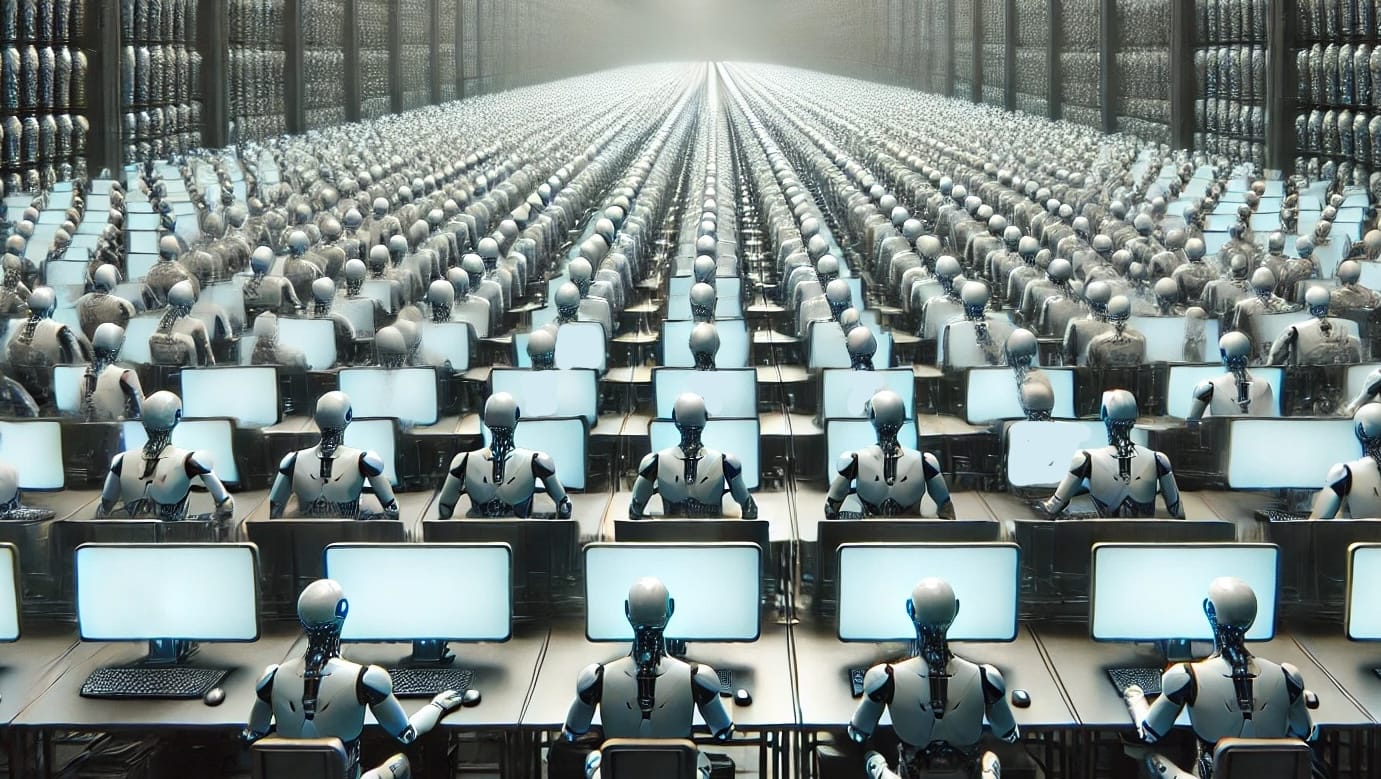
AI will be the death of the internet
The future of the internet is a lifeless wasteland. But what comes after that could be wild.
I'm a human being writing these words, not an AI chatbot. Of course that's what an AI chatbot would say.
In the last few years, AI has gotten scarily good. It can do things never before possible for a computer. However, it's become increasingly apparent that AI has a substantial dark side that may well outweigh its benefits.
It's worse than students cheating on their homework. For spammers, scammers and other unsavory types, AI is a boon like no other.
Astroturfing, propaganda, stealth marketing, and other species of disinformation have always been with us. But until recently, the need to employ human beings limited how they could be used. Even for an authoritarian state, hiring people to work at troll farms, posting inflammatory content around the clock, was a significant expense for an uncertain benefit.
AI has removed that obstacle. It can churn out unlimited volumes of text on demand. At the click of a button, a shady influence-buyer can spin up a thousand websites singing the praises of their products or anonymously bashing their competitors. They can dispatch swarms of bots onto social media to push whatever narrative they please. Real humans can't compete with this onslaught. We get drowned out by an unstoppable tsunami of AI sludge.
When internets die
This is the basis of "dead internet theory"—the belief that the internet has been taken over by bots, and we only think we're interacting with other humans. It started out as a conspiracy theory, but uniquely among conspiracy theories, it's evolving toward truth.
The inhuman mimicry of AI is everywhere. There are websites written by bots masquerading as humans, churning out clickbait articles that exist for the sole purpose of slapping ads on them; and there are bots that click those ads to earn scam revenue.
There are bot farms selling fake followers to celebrities and influencers to inflate their apparent popularity and writing fake reviews on Amazon and other marketplace sites. Amazon is also flooded with shoddy AI-generated books on trending topics.
Large social media platforms like Facebook are overrun with it. A huge amount of content on Facebook, possibly a majority, is zombie content: AI spewing out clickbait posts, and comment sections on those posts overrun by bots pretending to be humans to create fake engagement.
Twitter/X too has become a "ghost town" of bots hawking porn and cryptocurrency. According to one analysis, as much as 75% of the traffic X sends to its advertisers is fake.
By some estimates, bots already comprise as much as 50% of total internet traffic. And these are still the early days of AI. This problem is only going to get worse. It may not be long before encountering another human being on the net is a rare exception.
The future of the internet is a lifeless wasteland. It's a zombie funhouse of bots chattering inanely at each other, heedless of whether anyone is listening. It's an infinite conveyor belt of meaningless words spilling into the void, with no humans in the loop at all.
But it won't last. It can't. The same incentives that created this digital Babel will be its downfall.
The coming comeuppance
Most of these sites, especially social media platforms, rely on an ad-supported model. They're free to use because advertisers pay the costs of their upkeep in exchange for getting to market their products to human beings. What happens when there are no humans left?
When nothing and no one on the internet can be trusted—when every forum is overrun by bots in human disguise, when usage numbers are meaningless and most traffic is fake with no one behind it—then there's no longer any incentive for advertisers to participate. They'd be wasting their dollars and getting nothing in return.
Activists, too, will find it hard to justify trying to organize or lobby politicians on social media. Why bother, when genuine engagement is swamped by a bottomless horde of influence bots doing the bidding of dark money?
When the bots drown out the humans, the value of these platforms disappears. Like the ancient cyanobacteria that poisoned themselves by filling the atmosphere with oxygen, they'll smother under their own entropy.
When they go extinct, what will remain of the internet?
There will be no more big-tech platforms that try to be all things to all people. Instead, I can foresee a different future: more non-profits like Wikipedia, more niche communities, more hobbyists. These human-cultivated sites would either be free, run by their creators with no intent of making money, or supported by members willing to pay for what they value. Patreon and other audience-supported models come to mind.
As opposed to corporate monocultures, this will be more of an heirloom internet: the way it used to be, before the advent of ads and monetization. It will be wilder, weirder, and driven more by passion and less by the imperatives of profit. It won't be better or worse, necessarily, but it will be very different.
